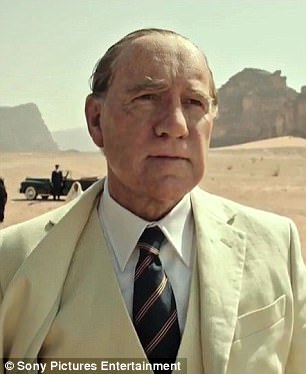Credo, e non sono l’unico a crederlo fermamente, che cancellare Spacey dal film e sostituirlo con Plummer sia innanzitutto un insulto all’Arte. Spacey sarà condannato e perseguito penalmente per le sue azioni, e non è questa la sede opportuna per approfondire la questione, ma il suo lavoro, come peraltro confermato dall’ipocrita Scott, l’aveva svolto egregiamente, con la sua consueta professionalità e con puntiglio maniacale, ah ah. Quindi, sostituirlo con l’egregio Plummer è quantomeno ridicolo, assume proporzioni grottesche questa decisione. Uno sfregio che sa di raffazzonatura imbarazzante e vergognosa, un film da boicottare a prescindere. Perché si è sconfinati nell’eccesso di un moralismo pruriginoso e peccaminosamente stucchevole. Poi, con tutta la stima per Plummer, come si evince da quest’immagine doppiamente ambigua, ah ah, da questo raffronto fra “mostri”… sacri, ah ah, pare che dica… ma che ci sto a fare qui? Fatemi godere la vecchiaia in santa pace. Sguardo rincoglionito in prossimità dell’ictus, stessi vestiti di Spacey, che gli vanno larghi, e labbro “pendulo” su cui rimaniamo perplessi come Getty.
In una parola, spettrale.
di Stefano Falotico



